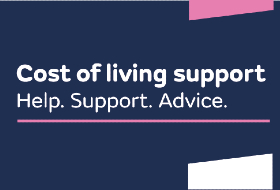Guidance for young people
Page updated on: 22/10/2024
What is Supported Lodgings?
Supported Lodgings is where you live as a lodger within someone’s home.
Living as a lodger means that you will have your own front door key and separate bedroom. You will share the kitchen, bathroom, living room and washing machine with the Supported Lodgings provider and their family.
You are expected to be able to do quite a lot for yourself to promote your independence and develop your independent living skills.
Supported lodgings provide a safe, supportive environment in which you can gain and further improve some of the practical skills you will need for when you move into your accommodation in the future.
You will practice how to cook your own meals, do your own food and toiletry shopping, learn to budget for bills, wash and iron your clothes, etc.
It is called “supported” lodgings because the Supported Lodgings provider who is there for you to talk to if something is worrying you, or if you are unsure of anything.
The scheme is open to young people, aged 16 to 18, who have been “looked after” by Carmarthenshire’s Children’s Services, at risk of homelessness or homeless.
Supported lodgings will suit you if you are looking to develop and promote your independence.
- Cooking some of your own meals.
- Learning to budget.
- Doing some of your own food shopping.
- Washing and ironing your own clothes.
- Education and training.
Before moving in, a “living together” agreement and “house rules” will be drawn up between you and your supported lodgings provider, and any professionals involved in your care and support will help with this also. The agreement will clearly state what you need to do during the placement to get ready for living on your own.
The agreement will also outline what tasks the provider and any professionals involved in your care and support will undertake during the placement e.g., for example a social worker/PA will continue to meet with you offering support and advice and will also identify your move-on accommodation.
The living together agreement will also list all the rules of the house: for example, you cannot play music loud after 11pm.
The length of placements will vary from young person to young person. It will depend on:
- Your needs and abilities,
- How soon you feel ready,
- You are being assessed as being ready to move into your own place.
- The length of time you spend in your lodgings will also depend on when your accommodation becomes available.
Shortly before moving in, a provisional moving out date will be set.
At each review, this date will be reconsidered to see if you need to stay longer or can move out sooner than anticipated.
You may be asked to leave your accommodation sooner than planned if you deliberately damage the provider’s property or behave in a threatening manner towards them.
If you are under 18, Carmarthenshire Children’s Services will pay your rent. If you are over 18 and in receipt of benefits, your rent will be paid by housing benefit and a contribution from yourself of a weekly service charge. If you are working or have large savings and cannot receive housing benefit, you will be expected to pay a contribution towards your rent out of your wages or savings.
Once you are 18 years of age, young people will be expected to pay a weekly contribution towards the cost of their food and bills whatever their income e.g., a weekly service charge.
All providers are assessed, and DBS checked to find out if they are suitable to offer supported lodgings to young people. They receive training to help them to support young people. All providers, and anyone over the age of 18 who lives with them, will be police, health and social services checked to ensure that they do not pose any risks to young people.
Yes. You will certainly have the chance to meet them at least once before moving in, the first time will be informal, giving you both the opportunity to see if you could live together. Neither you nor the providers are under any obligation to agree to the placement going ahead if, after this meeting, you feel that you could not get along.
No. The provider is not there to act as a parent, and you will not be expected to be part of their family. By choosing to live in supported lodgings you are saying that you do not need as much support and looking after as you did for example: if you were in foster care, living with family/friends or guardians.
Yes. Some information will be given to help them decide whether they could offer you, with your individual needs, accommodation, and support. Before passing on any information you will be aware of what information is being shared.
You can get more information about supported lodgings from your social worker/PA or any other professionals involved in your care and support. Alternatively, you can contact the Carmarthenshire Supported Lodgings Team.





